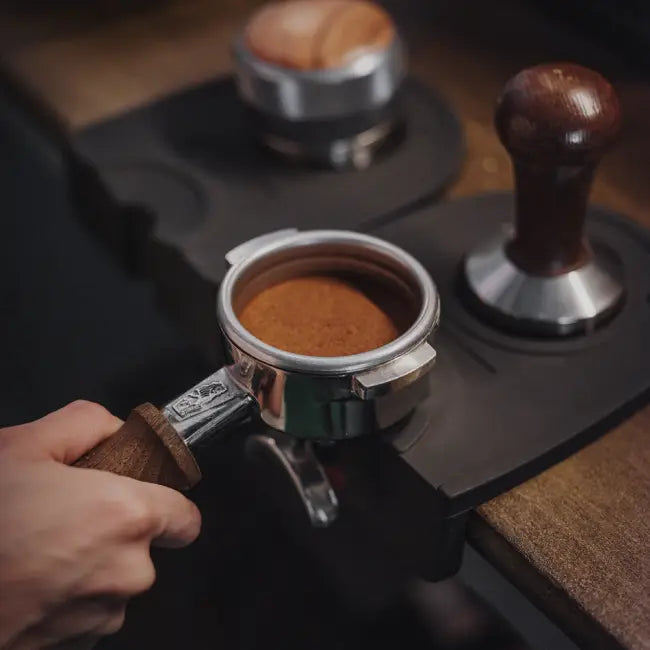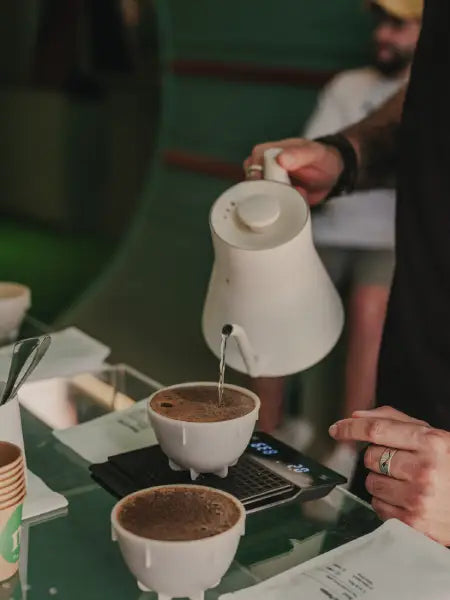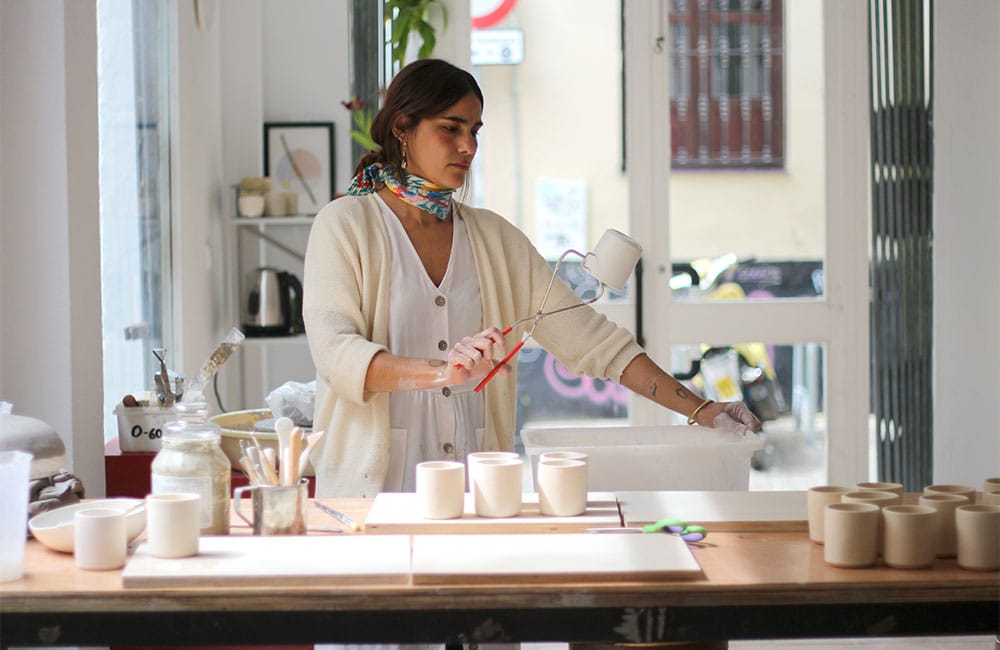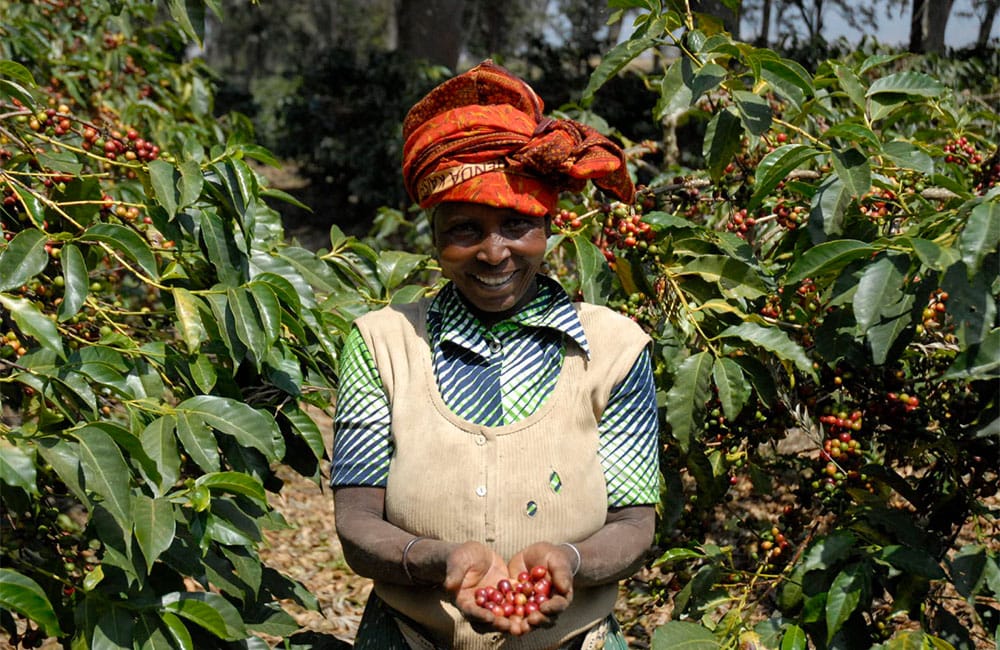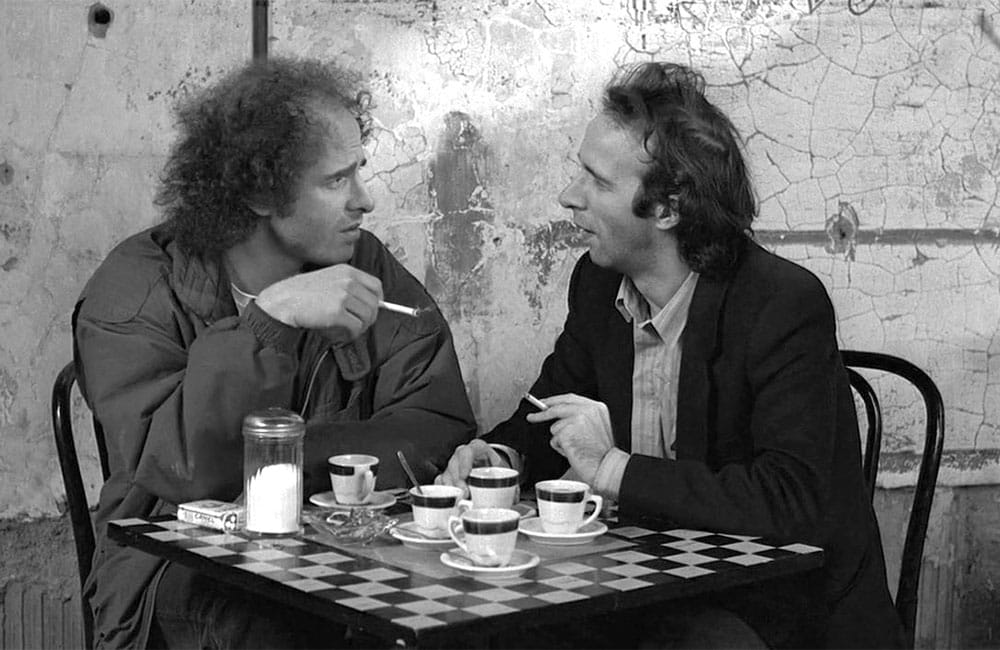
Ceramic mug in collaboration with Virgen Cerámica
Ineffable Coffee x Virgen Cerámica is the meeting of the world of specialty coffee and artisanal ceramics.
Two very different universes, with the same philosophy: the love for things well done and close by .
This beautiful cup represents our continued effort to push the boundaries of coffee beyond the established, turning it into an ineffable experience.
Each cup shows the artisanal production process it has gone through, molded one by one by the hands of Virginia Paz .
Virginia's work shows a deep love for matter and its possibilities for natural and organic expression.
A philosophy that is in tune with our vision of specialty coffee .
Each piece is slightly different , unique, with a minimalist and simple design, but with its own personality.
They are cups made with high-temperature clay, an ideal thickness to retain heat and a suitable size for all your preparations, from a V60 to an Aeropress .
Its width enhances the gustatory and olfactory experience, improving flavor perception.
 Biftu Gudina's coffee is processed using the washed method. Once at the washing station, the beans are hand-sorted, and any unripe or overripe beans are discarded before being passed through the Penagos eco-pulper (this machine helps reduce excessive water use). The beans are then soaked for approximately eight hours. The cooperative's wastewater treatment relies on a natural form of filtration through a plot of vetiver grass before passing through wells and finally into the soil. The beans are then sun-dried for 10 to 14 days on raised African beds and carefully hand-sorted again.
Biftu Gudina's coffee is processed using the washed method. Once at the washing station, the beans are hand-sorted, and any unripe or overripe beans are discarded before being passed through the Penagos eco-pulper (this machine helps reduce excessive water use). The beans are then soaked for approximately eight hours. The cooperative's wastewater treatment relies on a natural form of filtration through a plot of vetiver grass before passing through wells and finally into the soil. The beans are then sun-dried for 10 to 14 days on raised African beds and carefully hand-sorted again.  Biftu Gudina's coffee is processed using the washed method. Once at the washing station, the beans are hand-sorted, and any unripe or overripe beans are discarded before being passed through the Penagos eco-pulper (this machine helps reduce excessive water use). The beans are then soaked for approximately eight hours. The cooperative's wastewater treatment relies on a natural form of filtration through a plot of vetiver grass before passing through wells and finally into the soil. The beans are then sun-dried for 10 to 14 days on raised African beds and carefully hand-sorted again.
Biftu Gudina's coffee is processed using the washed method. Once at the washing station, the beans are hand-sorted, and any unripe or overripe beans are discarded before being passed through the Penagos eco-pulper (this machine helps reduce excessive water use). The beans are then soaked for approximately eight hours. The cooperative's wastewater treatment relies on a natural form of filtration through a plot of vetiver grass before passing through wells and finally into the soil. The beans are then sun-dried for 10 to 14 days on raised African beds and carefully hand-sorted again.  Biftu Gudina's coffee is processed using the washed method. Once at the washing station, the beans are hand-sorted, and any unripe or overripe beans are discarded before being passed through the Penagos eco-pulper (this machine helps reduce excessive water use). The beans are then soaked for approximately eight hours. The cooperative's wastewater treatment relies on a natural form of filtration through a plot of vetiver grass before passing through wells and finally into the soil. The beans are then sun-dried for 10 to 14 days on raised African beds and carefully hand-sorted again.
Biftu Gudina's coffee is processed using the washed method. Once at the washing station, the beans are hand-sorted, and any unripe or overripe beans are discarded before being passed through the Penagos eco-pulper (this machine helps reduce excessive water use). The beans are then soaked for approximately eight hours. The cooperative's wastewater treatment relies on a natural form of filtration through a plot of vetiver grass before passing through wells and finally into the soil. The beans are then sun-dried for 10 to 14 days on raised African beds and carefully hand-sorted again.  Biftu Gudina's coffee is processed using the washed method. Once at the washing station, the beans are hand-sorted, and any unripe or overripe beans are discarded before being passed through the Penagos eco-pulper (this machine helps reduce excessive water use). The beans are then soaked for approximately eight hours. The cooperative's wastewater treatment relies on a natural form of filtration through a plot of vetiver grass before passing through wells and finally into the soil. The beans are then sun-dried for 10 to 14 days on raised African beds and carefully hand-sorted again.
Biftu Gudina's coffee is processed using the washed method. Once at the washing station, the beans are hand-sorted, and any unripe or overripe beans are discarded before being passed through the Penagos eco-pulper (this machine helps reduce excessive water use). The beans are then soaked for approximately eight hours. The cooperative's wastewater treatment relies on a natural form of filtration through a plot of vetiver grass before passing through wells and finally into the soil. The beans are then sun-dried for 10 to 14 days on raised African beds and carefully hand-sorted again.  Biftu Gudina's coffee is processed using the washed method. Once at the washing station, the beans are hand-sorted, and any unripe or overripe beans are discarded before being passed through the Penagos eco-pulper (this machine helps reduce excessive water use). The beans are then soaked for approximately eight hours. The cooperative's wastewater treatment relies on a natural form of filtration through a plot of vetiver grass before passing through wells and finally into the soil. The beans are then sun-dried for 10 to 14 days on raised African beds and carefully hand-sorted again.
Biftu Gudina's coffee is processed using the washed method. Once at the washing station, the beans are hand-sorted, and any unripe or overripe beans are discarded before being passed through the Penagos eco-pulper (this machine helps reduce excessive water use). The beans are then soaked for approximately eight hours. The cooperative's wastewater treatment relies on a natural form of filtration through a plot of vetiver grass before passing through wells and finally into the soil. The beans are then sun-dried for 10 to 14 days on raised African beds and carefully hand-sorted again.  Biftu Gudina's coffee is processed using the washed method. Once at the washing station, the beans are hand-sorted, and any unripe or overripe beans are discarded before being passed through the Penagos eco-pulper (this machine helps reduce excessive water use). The beans are then soaked for approximately eight hours. The cooperative's wastewater treatment relies on a natural form of filtration through a plot of vetiver grass before passing through wells and finally into the soil. The beans are then sun-dried for 10 to 14 days on raised African beds and carefully hand-sorted again.
Biftu Gudina's coffee is processed using the washed method. Once at the washing station, the beans are hand-sorted, and any unripe or overripe beans are discarded before being passed through the Penagos eco-pulper (this machine helps reduce excessive water use). The beans are then soaked for approximately eight hours. The cooperative's wastewater treatment relies on a natural form of filtration through a plot of vetiver grass before passing through wells and finally into the soil. The beans are then sun-dried for 10 to 14 days on raised African beds and carefully hand-sorted again.  Biftu Gudina's coffee is processed using the washed method. Once at the washing station, the beans are hand-sorted, and any unripe or overripe beans are discarded before being passed through the Penagos eco-pulper (this machine helps reduce excessive water use). The beans are then soaked for approximately eight hours. The cooperative's wastewater treatment relies on a natural form of filtration through a plot of vetiver grass before passing through wells and finally into the soil. The beans are then sun-dried for 10 to 14 days on raised African beds and carefully hand-sorted again.
Biftu Gudina's coffee is processed using the washed method. Once at the washing station, the beans are hand-sorted, and any unripe or overripe beans are discarded before being passed through the Penagos eco-pulper (this machine helps reduce excessive water use). The beans are then soaked for approximately eight hours. The cooperative's wastewater treatment relies on a natural form of filtration through a plot of vetiver grass before passing through wells and finally into the soil. The beans are then sun-dried for 10 to 14 days on raised African beds and carefully hand-sorted again.  Biftu Gudina's coffee is processed using the washed method. Once at the washing station, the beans are hand-sorted, and any unripe or overripe beans are discarded before being passed through the Penagos eco-pulper (this machine helps reduce excessive water use). The beans are then soaked for approximately eight hours. The cooperative's wastewater treatment relies on a natural form of filtration through a plot of vetiver grass before passing through wells and finally into the soil. The beans are then sun-dried for 10 to 14 days on raised African beds and carefully hand-sorted again.
Biftu Gudina's coffee is processed using the washed method. Once at the washing station, the beans are hand-sorted, and any unripe or overripe beans are discarded before being passed through the Penagos eco-pulper (this machine helps reduce excessive water use). The beans are then soaked for approximately eight hours. The cooperative's wastewater treatment relies on a natural form of filtration through a plot of vetiver grass before passing through wells and finally into the soil. The beans are then sun-dried for 10 to 14 days on raised African beds and carefully hand-sorted again.  Biftu Gudina's coffee is processed using the washed method. Once at the washing station, the beans are hand-sorted, and any unripe or overripe beans are discarded before being passed through the Penagos eco-pulper (this machine helps reduce excessive water use). The beans are then soaked for approximately eight hours. The cooperative's wastewater treatment relies on a natural form of filtration through a plot of vetiver grass before passing through wells and finally into the soil. The beans are then sun-dried for 10 to 14 days on raised African beds and carefully hand-sorted again.
Biftu Gudina's coffee is processed using the washed method. Once at the washing station, the beans are hand-sorted, and any unripe or overripe beans are discarded before being passed through the Penagos eco-pulper (this machine helps reduce excessive water use). The beans are then soaked for approximately eight hours. The cooperative's wastewater treatment relies on a natural form of filtration through a plot of vetiver grass before passing through wells and finally into the soil. The beans are then sun-dried for 10 to 14 days on raised African beds and carefully hand-sorted again.  Biftu Gudina's coffee is processed using the washed method. Once at the washing station, the beans are hand-sorted, and any unripe or overripe beans are discarded before being passed through the Penagos eco-pulper (this machine helps reduce excessive water use). The beans are then soaked for approximately eight hours. The cooperative's wastewater treatment relies on a natural form of filtration through a plot of vetiver grass before passing through wells and finally into the soil. The beans are then sun-dried for 10 to 14 days on raised African beds and carefully hand-sorted again.
Biftu Gudina's coffee is processed using the washed method. Once at the washing station, the beans are hand-sorted, and any unripe or overripe beans are discarded before being passed through the Penagos eco-pulper (this machine helps reduce excessive water use). The beans are then soaked for approximately eight hours. The cooperative's wastewater treatment relies on a natural form of filtration through a plot of vetiver grass before passing through wells and finally into the soil. The beans are then sun-dried for 10 to 14 days on raised African beds and carefully hand-sorted again.
